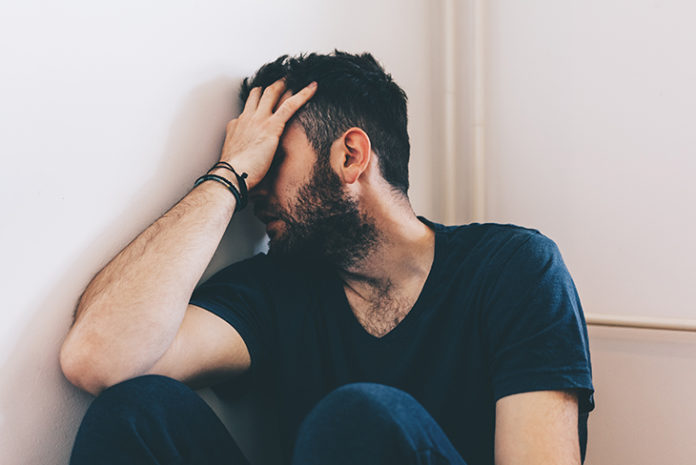Seeing drug addiction right in front of them could be dangerous! The hostile behavior, isolation, and then comes the withdrawal and relapses. Thus, if you are someone helping someone battling drug addiction, you already have our respect!
The path towards addictions differs from person to person. One could feel the world of depression and the impending doom of hopelessness. While others can be filled with anger, and their hostile behavior will seem no limit.
All in all, wrecked-up mental health is an inevitable part of drug addiction. However, if you are scared that this is the end of everything, then don’t! Because there is light at the end of the tunnel, neither your nor that patient’s life is doomed forever.
If they are unable to withhold perseverance, you can be their backbone. Let them know that there is a helping hand at all times. Yes, you will need research, and you will need patience! The excerpt below might be able to help you better as we elaborate upon the different stages of drug addiction by recovery experts.
What Are The Different Stages Of Drug Addiction
Here is a thorough breakdown of the different stages of drug addiction. Although addiction is different for every patient, there is a set principle for every person that can determine the addiction’s intensity.
If the intensity is high, then the individual is in the large stage of addiction before they overdose. You might need help from professionals now. This popular Orange County rehabilitation center provides all the extravagant services needed.
1. The ‘I Will Just Try It!’ – Aka Experimentation
This is the experimentation stage. The individual is an innocent novice who has just wrongfully mixed with a suspicious crowd.
Either they want to try it for the purpose of curiosity (now that it is available), or they are trying to impress another individual or a group of people. This is why intravenous drug addiction is so common among teenagers.
Peer pressure in a stage of confusion is the biggest contributing factor to such addiction.
2. The ‘I Am Not Addicted’ Aka Regular Use
We call this the denial phase when the individual is not exactly addicted to the drugs, but their body is slowly growing the dependency.
They will often find themselves doing these drugs but are scared to admit that they have a problem. Because then they have to eventually admit to quitting or ask for help.
3. The ‘I Need It Because I Have Anxiety – Aka Risky
When they start doing drugs for no apparent reason. Or, more so, they will somehow find a reason.
Any stressful day needs a drug to cope; they cannot help themselves. This is the risky stage where the body is slowly progressing towards full dependency, and they might get to the last stage of addiction.
4. The ‘I Do Not Care About The Consequences’ – Aka Full Addiction
When the individual has stopped caring about the consequences, they have started surrounding themselves with a shady group of people and isolating themselves from the real loved ones who really care about them; then there is an issue.
This is the last stage of addiction, where the individual becomes a patient. Then, they have a compulsive use of drugs that physically and mentally affect their bodies.
They are unable to say no, and when they do, they are ambushed with the worst withdrawal effects.
5. The ‘I Can’t Breathe’ – Aka Overdose
This stage doesn’t come for everyone if they take the right measure at the right time.
However, if the drug addiction continues with no restriction, the patient will lose all sense of judgment and start getting more and more trivial about the matter.
No matter what you do, never ever let someone get to the point of overdose. Help is not far away, and if you want, you can get the right care and nurture for the patient.
What Are The Worst Side Effects Of Drug Addiction
Once an individual is going through all the stages of addiction, they suffer through some of the worst side effects.
These are as follows.
1. Psychological Effects
Let us first start with the psychological effects, which will help us understand the side effects one mental health better.
Some of the common psychological effects are,
- Clinical Depression.
- Severe Anxiety.
- PTSD from past traumas heightened by the chemical reaction of the chemicals in the drugs.
- Hallucinations and delusional thoughts.
This is why cognitive behavioral therapy comes first in any addiction recovery program.
2. Physiological Effects
Drugs are chemicals constantly secreted in your nervous system, needleless to say; there are psychological problems that are going to affect them.
Major health issues like seizures, sexual dysfunctionality, cardiovascular and imbalance pressure are common biological problems every patient faces.
Once you get into a recovery program, they first detoxify the patient’s body and clean the system from any residual toxins in the blood. After which, the actual treatment starts.
3. Environmental Effects
Environmental effects are the different consequences that a patient has to deal with because of their addiction.
These could be monetary loss from buying drugs for too long or academic and job failure because of the lack of concentration in their work.
These consequences can worsen if the person doesn’t care about getting better.
Get The Treatment!
Getting the right kind of treatment is important!
Because first, the patient is super vulnerable, so they wouldn’t be able to make the right judgment. They need professionals who will care for and nurture them.
Plus, keep them steady on their feet so that they don’t even think about relapses.
Get the right help while there is the time!

